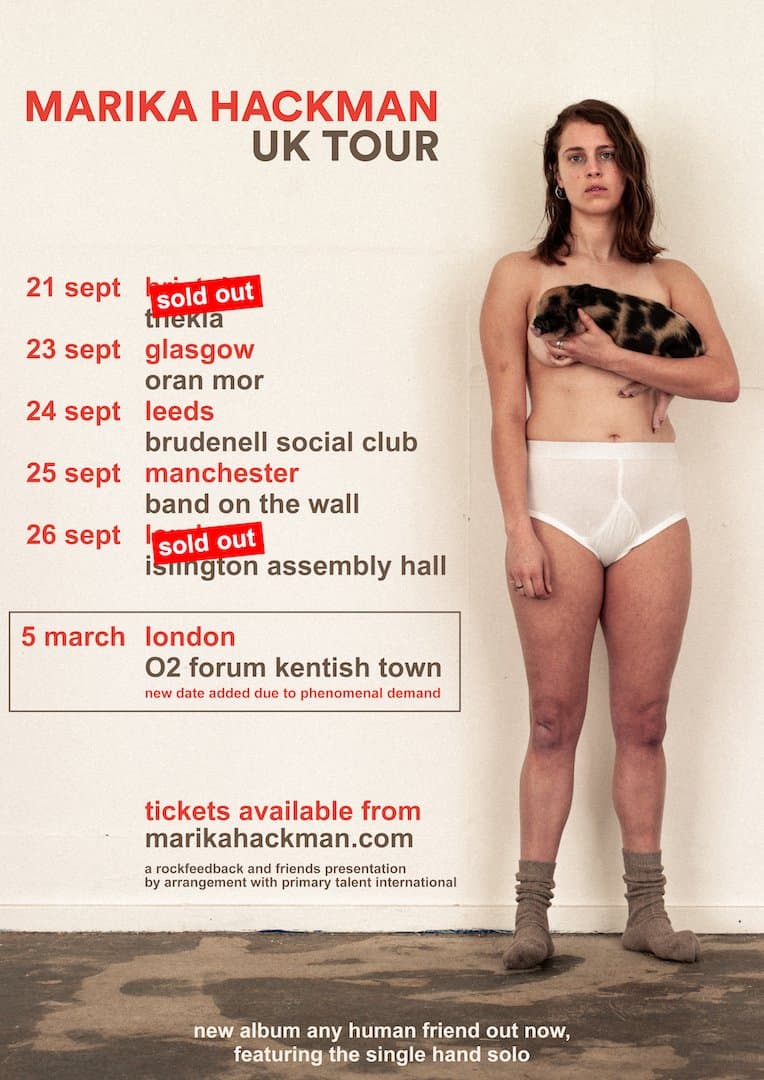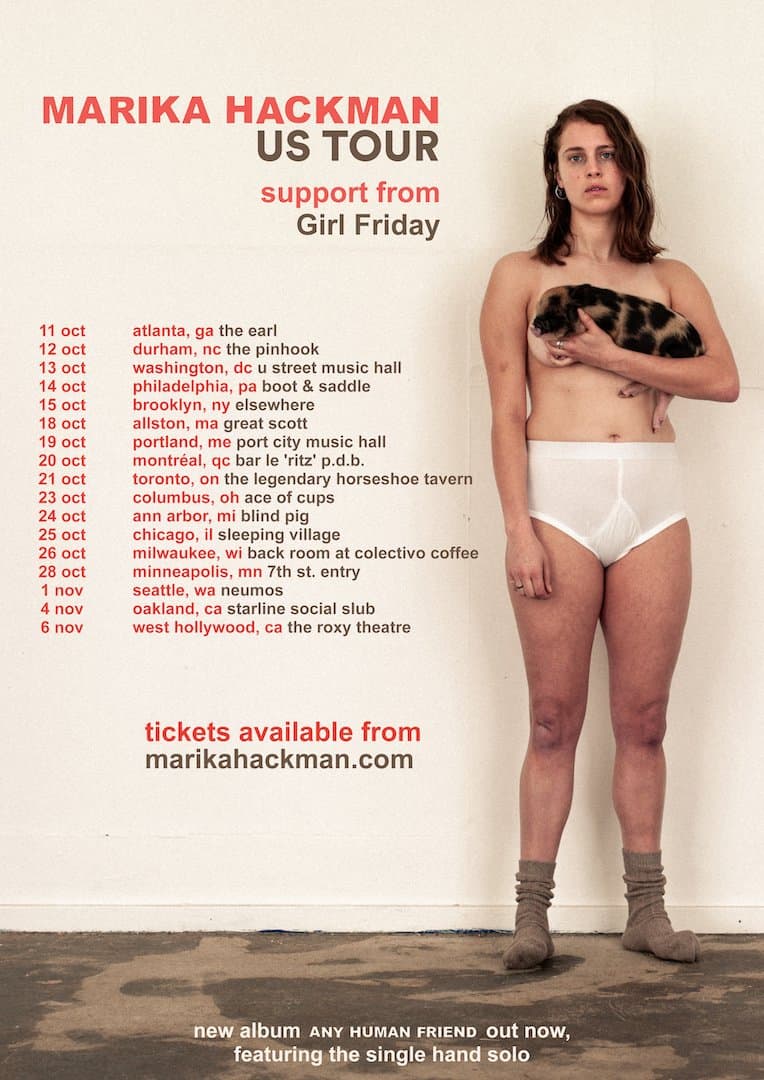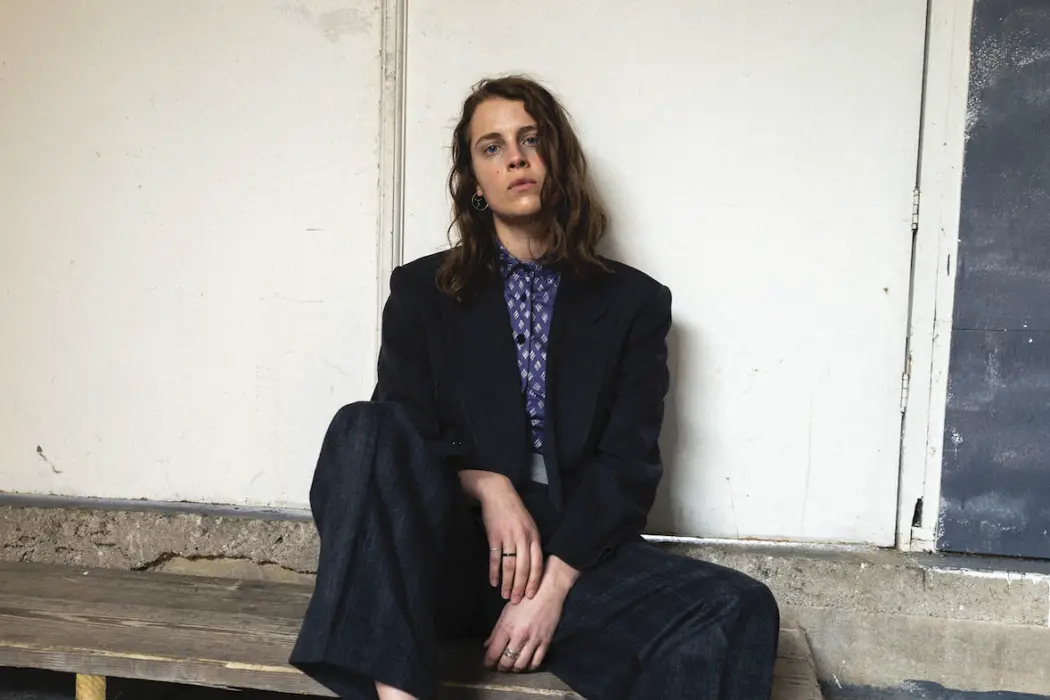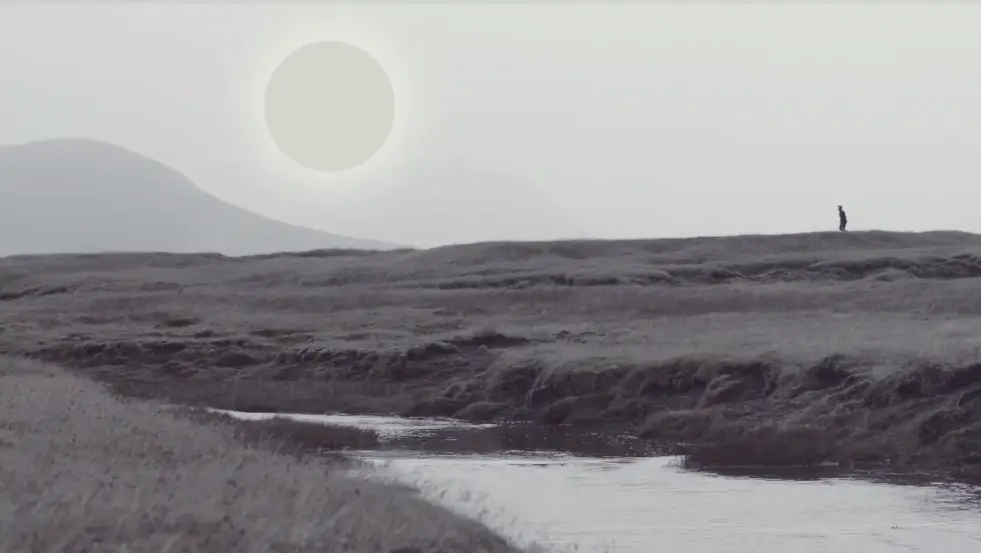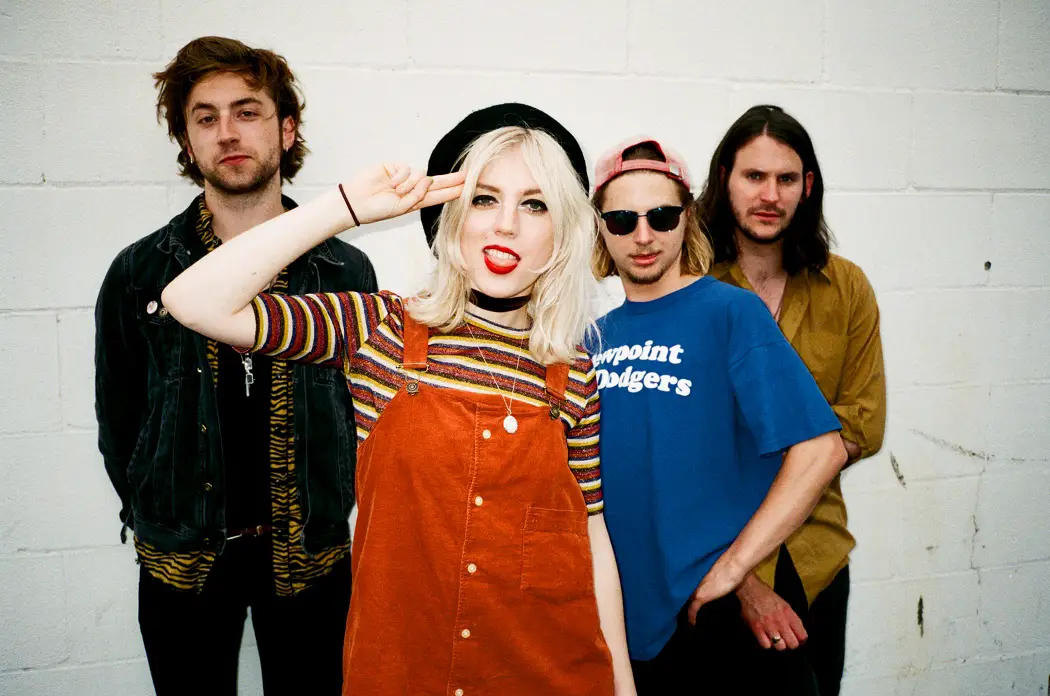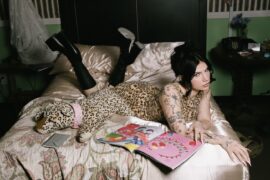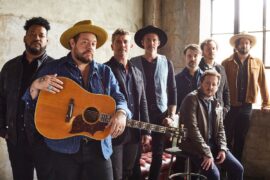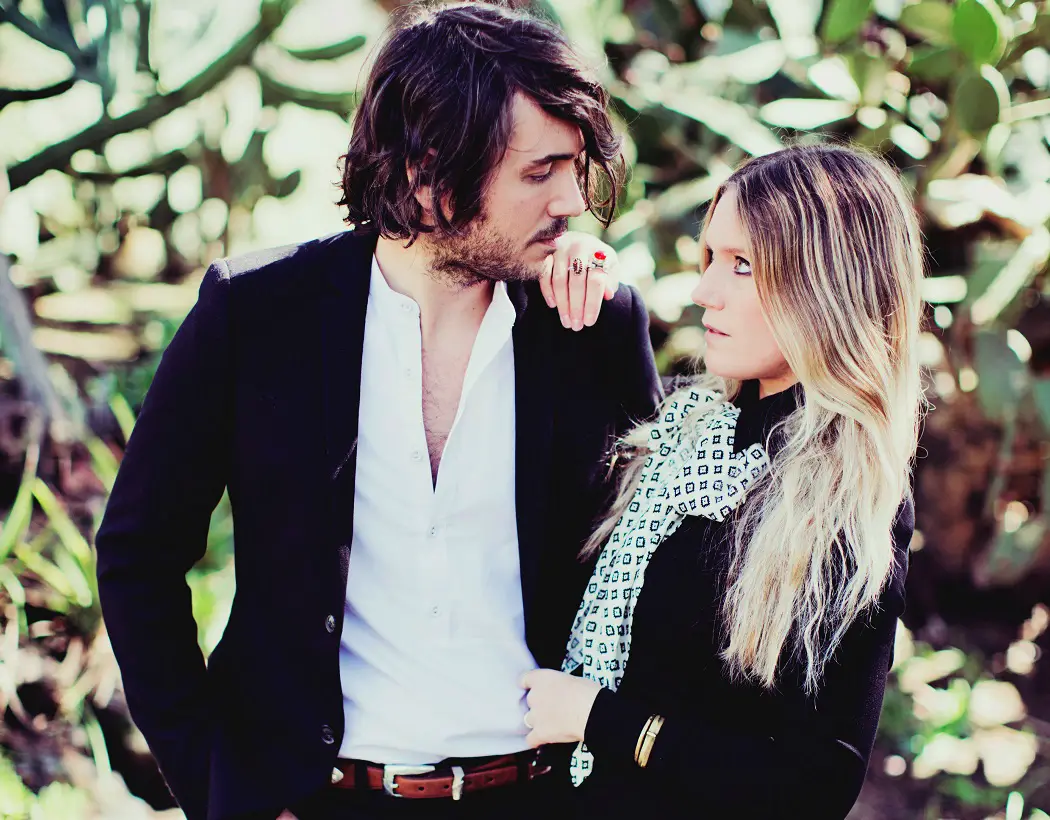Marika Hackman talks to Atwood Magazine about her new album ‘Any Human Friend’, the power of vulnerability and honesty in music, balancing light and darkness, and becoming a queer icon.
— —
Marika Hackman’s latest album starts with a trap. “wanderlust”, the record’s opening track, is a quiet and introspective song, one that you can picture being played to you in your living room more than on venue stages. In it, Hackman is alone with an acoustic guitar, strumming in a pattern that sounds familiar, very much like her own 2015 song “Ophelia.”
She’s heartbroken, reflecting upon a relationship gone wrong, and begging her listeners to think she has re-inhabited a skin she shed years ago. It will be a familiar treat for all the people who fell for Hackman’s early work, especially debut album We Slept at Last, which earned her a reputation as a dark, folk singer-songwriter, a title that has followed her throughout her career for better or for worse.
On 2017’s I’m Not Your Man, the acoustic guitar and folk influences were abandoned, replaced by razor-sharp electric guitar riffs and an energy and look that made YouTube commenters refer to Hackman as the female Kurt Cobain on the video for “Boyfriend”. And yet, somehow, people still held onto Hackman’s early work, seemingly trying to hold on to a folkier sound they deemed was her authentic self.
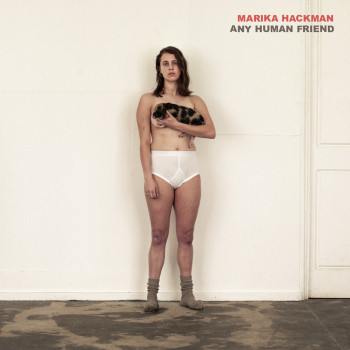
And so, to open her fantastic third record, Any Human Friend, Hackman decided to trick people. Sure, for its first three minutes “wanderlust” makes you think that she’s caved, is back to her old self, but a delightfully weird and loud transition spits you right into “the one” – a pop, high energy and ironic song about selling out. “I’m not the one you want/ I fucked it up with the saddest songs” she sings, right after the type of sad and quiet song that made her popular. It’s a slap in the face of her critics, the picture of an artist reclaiming her own power and self, and the perfect way to say to people that if this is not the Marika they wanted, they can politely fuck off.
Any Human Friend is Hackman at her best. Three albums into her career, the British artist has never been as confident or inhabited a sound that’s as challenging and new as it is comfortable for her. The stories the album tells range from a punishing look at yourself after a breakup, to a sultry song about lesbian sex, an anthem for female masturbation, and a closing song about how we’re all special and golden. Superficially, Any Human Friend is a fun and cheeky record about love and sexuality, but the more you listen to it and look deeper, the more it is an in-depth examination of the good and bad parts of being human.
Watch: “i’m not where you are” – Marika Hackman
Hackman has never shared so much of herself with the public, something that’s reflected on both the directness of her lyrics and the album’s cover art, which features Hackman – visually upfront and centre on an album cover for the first time – and the more she lets her in, the better she gets.
Self-loathing and self-love are served in equal amount, and are equally as compelling when told through Hackman’s eyes.
Lead single “i’m not where you are” shows us an emotionally unavailable Hackman “trying to find the point in human contact”, a phrase which indirectly becomes the thesis statement of the album. By zooming into and sharing her life, flaws, and experiences in Any Human Friend, Marika Hackman has created the perfect platform through which she can connect with others and relish in the richness and uniqueness of human contact.
Atwood Magazine spoke to Marika Hackman about her new album Any Human Friend, the power of vulnerability and honesty in music, balancing light and darkness, and becoming a queer icon.
Listen: Any Human Friend – Marika Hackman
A CONVERSATION WITH MARIKA HACKMAN
Atwood Magazine: First of all, congratulations on the album. I’m a big fan, and love basically anything you do, but Any Human Friend is just beyond. It’s incredible. I’m sure you’re really happy with it.
Marika Hackman: Thank you so much. Yeah, I am really happy and I’m excited it’s in the world, finally, which is great!
How does it feel having it out there after sitting on it for so many months?
Marika Hackman: You know what, it’s a very strange process because like you said, I’d been sitting on it for ages and kind of I just wanted everybody to hear it but there was also this sick joy in having this sort of secret that no one else has heard. And then you release it, so exciting, huge, huge fun, you’re kind of running on adrenaline and then you just completely crash and burn. I’m crashing and burning at the moment (laughs). It’s nice though, now I can relax and calm down. It feels great also hearing everyone’s amazing responses to it. I’m recalibrating a bit now and then I’m touring it, get it back out there, and then work on the next one which is kind of what I’m already doing.
On Any Human Friend, it’s the first time we’re actually seeing you, fully, up-front and center in the cover of an album. And not only that, but you’re also half-naked on it. I’ve heard you talk about feeling anxious for the album cover shoot and exposing so much of yourself, which to me is interesting because you’re already emotionally baring so much, if not more, on the record. Why was now the right time to open yourself up like this, both physically and emotionally?
Marika Hackman: I mean it’s because I just felt ready to do that. I was just feeling confident enough to put myself out there. The music is really honest, and that’s the point, because that’s how you make a connection, that’s how you connect with people, and you want people to connect with what you’re putting out there. And yeah, I just felt like at this point in my life as well I’ve had experience and done enough self-reflection so I could dig into patterns of behavior, and had the confidence to put that out there so everyone can connect with it.
Visually, it’s interesting, that was in a way the most intimidating thing. Because when it comes to writing music, that’s what I do, it’s what I’ve always done so it’s something I really understand and am confident in. It’s my career, I’ve learned so much about it, I know what I’m doing. Whereas, having my photograph taken without any clothes on (laughs) isn’t a language I fully understand. It’s all an appendage to the music that’s being made, but that was one of the most daunting things in my career that I’ve done thus far. But it made sense, just like you said, if the lyrics are being that bold and personal, then the visual should do that too, and it becomes all about me and it’s honest and it’s raw and I’ve got to be me out there, just honest and raw.
“wanderlust” opens the album, and is quiet and heavenly when you listen, but when you pay attention to the lyrics it’s actually quite heartbreaking and sad. What is the song about, and why open with this?
Marika Hackman: That song is actually really old, and I wrote it a long time ago, way before I was writing this record, before I’d even made the last record. It was funny, it captured a moment in time for me, really, where I was feeling, obviously if you read the lyrics, a little bit heartbroken I would say, or maybe lost, and kind of reflecting on that at that time spent with another person. I was home alone and wrote and recorded the song, with the Apple headphones’ mic, and that was that. It was a complete moment in time, and that’s what you hear now. I didn’t change it in any way, or re-record it, it’s that moment. And I’ve always really liked the song, but I didn’t feel like I wanted it to be on the last record, so coming into this one I felt, it was a good way to capture something fleeting, because it is such a moment in time, it feels like a present state. And then snatching you away from that, because it’s quite lo-fi, raw, kind of what the sentiment of the record is, and then you get swept into a journey of fucked up self-discovery. Also, “the one”, which is the first song I wrote with this record in mind, I think the combination of the two together is kind of awesome, just making a massive joke. I wanted everyone to listen to that and be like “Oh she has come back to a more We Slept at Last style” and then suddenly there’s a song about selling out and fucking up my career with sad songs and having a massive ego. And I thought pairing these two was just too perfect to not let it happen.
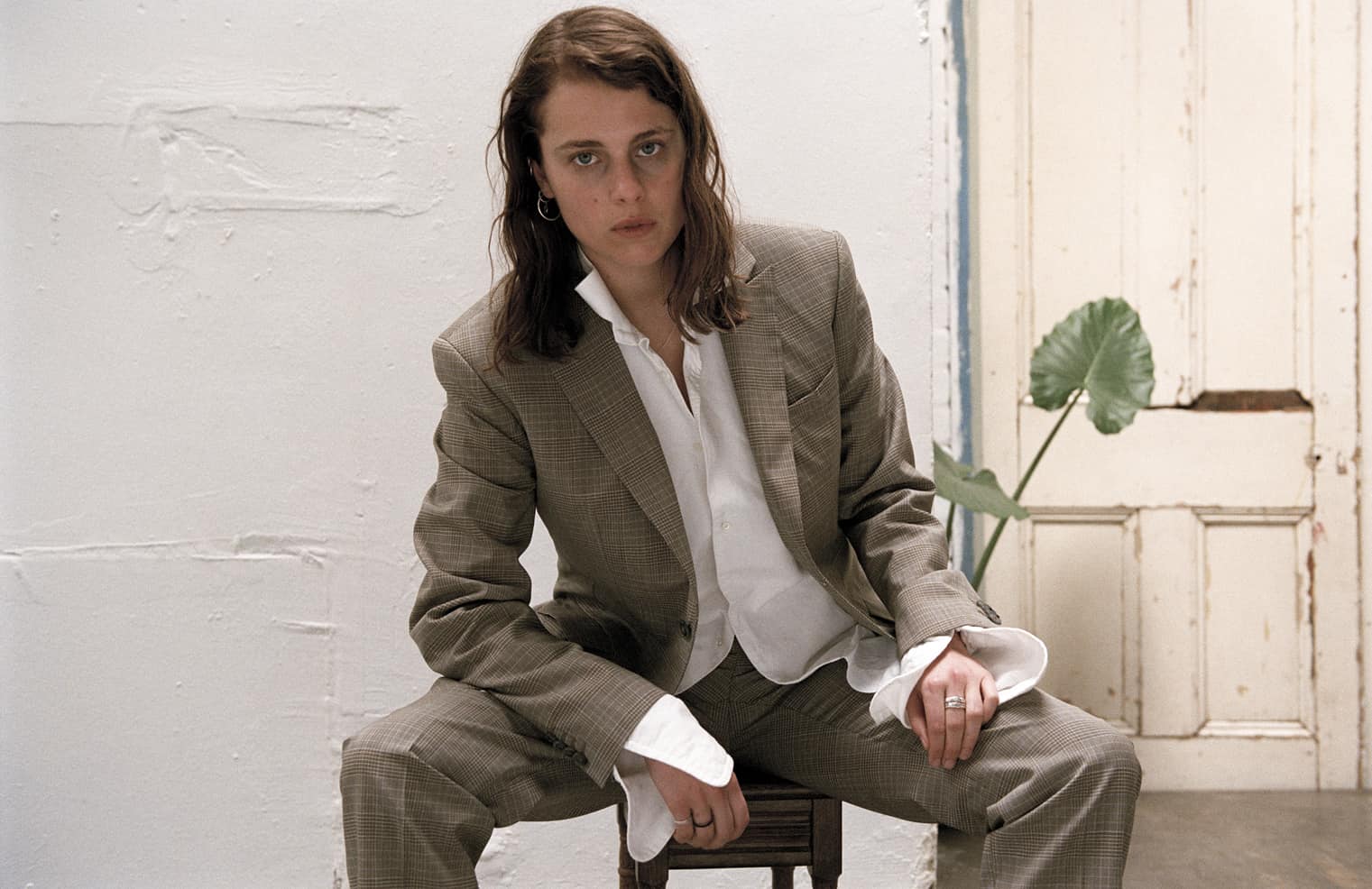
It‘s interesting that you mentioned the pairing of these two songs, because I wanted to ask you about it. I think the first time I listened to ”the one“, even though I hadn‘t listened to it in an album context, I always thought it was a reflection on the dark folk singer image that everyone attributed to you because of We Slept at Last, being a comment on that and a response to the image that people had of you, because it took a while for people to accept that you’re not going to be put into a box musically.
Marika Hackman: Yeah, I was completely trying to do that with that song. So much time was spent [by other people] trying to decide if I was a certain way. And coming into the second record, some people said it was folk-grunge, which isn’t a genre. It was born out of frustration, and inhabiting this crazy character [in “the one”] that’s me owning that, like “Fine, fuck you, I can do that, just leave me alone” (laughs). But yeah, it’s me reclaiming that power.
Well, if you’re the one saying you’re selling out, then no one can accuse you of that.
Marika Hackman: Exactly. If you look at the whole record it’s me going, “I’m a massive dickhead, but I just called myself a dickhead, so you can’t call me a dickhead.”
Watch: “the one” – Marika Hackman
In another interview you said that with the acoustic guitar you invite people in, and with the electric guitar you make a noisy statement, not shutting people out exactly but not being as inviting as with the acoustic. Weirdly I think, just by nature of your lyrics and confidence, your music has been getting so much more open and inviting more people in after you started using the electric guitar as your main instrument.
Marika Hackman: It’s exactly that. With the acoustic guitar I had this wall up lyrically, but now it’s an opposing combination. It’s gotten louder and more forceful but my lyrics are just so open, that even if they are coming at you at super high volume, there’s something so vulnerable about them, you can’t help but get pulled in. And it’s really weird because my most vulnerable lyrics are the ones that are accompanied by the loudest, gnarliest, most upbeat music and my darker, moody songs are actually not vulnerable at all because I was being honest, but certainly not open. I was being more playful with words and experimenting with my more poetic side.
I’m very interested in the juxtaposition of “send my love” and ”hand solo“. It’s the most emotionally vulnerable followed by maybe the most confident and cheeky and physical song on the record. Why connect both of these?
Marika Hackman: It’s an interesting one. You have ideas, and you’re writing outros and things like that and I could tell they would work really well one off the other, “hand solo” and “send my love”, and “send my love” is definitely the most vulnerable moment on the record, those lyrics are really, really horrible, and you have that and you get this cool kind of sound and then you get a song about self-love, quite literally. And also like, you can be there, you can be on the floor, you can feel like shit and you can feel like your world is crumbling around you, but you’ll be okay, you’ll pull yourself back and you’ll want to masturbate again (laughs). You can re-awaken that side of yourself and that will happen with time. That outro leading in, it’s almost funeralistic, it’s going on and on and suddenly the pace decreases and it’s met with humour and an upbeat tune about wanking. It’s good balance, you can feel things, and you can feel another thing, and both at the same time, it’s all about being human.
Speaking of the balance of the record, I love the contrast of the confidence of “the one” and then ending on this vulnerable and beautiful moment which is “any human friend”. I’m wondering if when you were writing the songs you knew you were going to examine so many sides of yourself, because it feels like you’ve left everything on the table.
Marika Hackman: When I’m writing a record I know that I’ll be examining myself and I’ll be tuning in to however it is I’m feeling. I guess how I write the lyrics, that is the big shift. With this one there was a lot to write about (laughs) a lot of stuff that I wanted to look at, and feel, and experience, and get it all out on the table and in a really clear way. I’d say like, for queer people, it’s like me wanting to hear songs about crushing on women when I was a kid, but I also want to hear songs about feeling like you’re an asshole and hating yourself sometimes, that’s really important too. I feel like in the world there’s a lot of really builshitty “I’m having such a great time”, “I’m probably having a better time than you and my life is wonderful” and actually that’s not what makes everyone feel better. Being honest and being like “Yeah, I’m feeling really shit, but I’m going to be okay, I can get through it”, that’s helpful and that’s what you want to hear. It’s comforting. It’s something that I felt like, I am my favourite subject to write about because I know me very well, so I think every time I can get whatever the fuck is in my head. And if I’m doing that, and I’m being clear enough and someone can listen to it and go “Ah, shit”, I have a sense of relief, because that’s great.
Does it scare you at all to be this open about the darker parts of yourself and hating yourself?. Because I suspect it must not be the most comfortable thing to write about, especially when you’re feeling it.
Marika Hackman: I don’t ever worry about it. It feels quite natural and very comfortable for me to do that, and I think as much as I write about self-loathing, I also write about celebrating. Everything is a balance, the light and darkness, these periods exist side by side, it’s not one or the other. You can have a whole range of emotions going on and that’s okay, that’s what life is. That’s how I made the record.
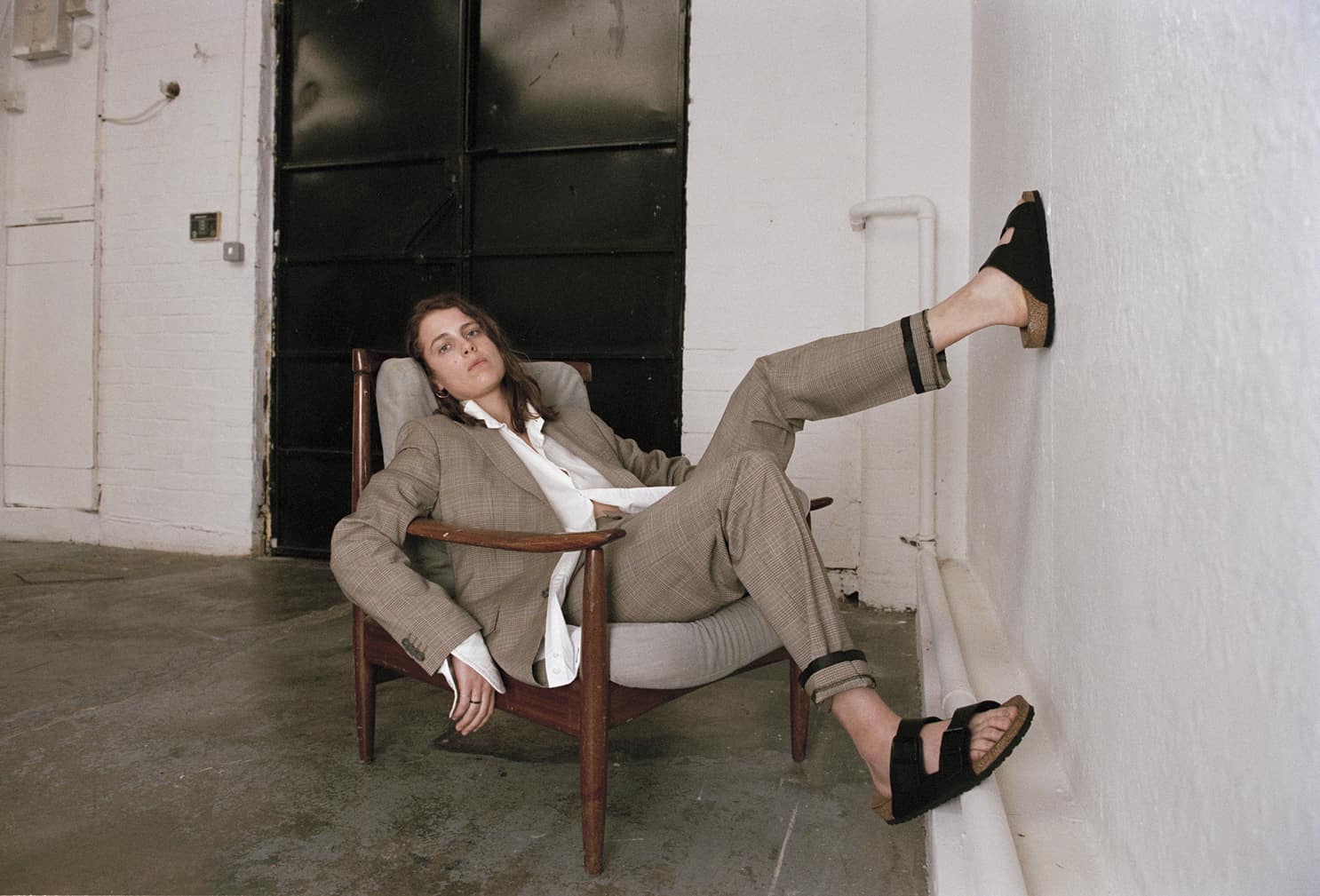
You always tend to reference other cultural products in your lyrics. there’s Cindy from The L Word in ”My Lover Cindy“, the Robert Frost poem in We Slept at Last, on this record “hand solo” is peppered with these like petite mort, the monkey glove, and going blind etc. These obviously make sense to you but people who listen to your music might not get most - if any - of the references. Is it important to you that people understand your lyrics in this deeper way?
Marika Hackman: Hm, no, I guess if you know, you know I love a lot of music where I don’t understand what the fuck the person’s saying. I think lyrics, when they’re bold and give you the ability to do that, that’s the best thing in the world, but a song that is well-crafted and based on amazing music, that’s also a very powerful thing. If I talk about the line “monkey glove”, to me that fits into the song somehow and you don’t have to understand I got it from a book all about people getting hairy hands for masturbating. It’s nice when you know it, but stuff like that, people ask me what it means and they’re like “Oh, shit!”, you can go on a journey with it, which is a really nice thought.
It does feel pretty cool when you’re listening and you do get a reference straight away, like I knew what petite mort was, for example, and I felt pretty proud of myself. It’s like a cultural Easter egg hunt of sorts.
Marika Hackman: (laughs) Yeah, that’s pretty cool as well, it’s what I like about it. I know there will be people who listen to it who are going “Yeah!” (laughs).
I feel like people have been focusing a lot on how open you are about sex and sexuality on this record, and even though the openness with which you talk about this is something new, you’ve always had a tendency of talking about the unconventional, the stuff people don’t want to talk about, and using absurdist imagery in your music. What makes you lean towards the absurd or unusual in your music?
Marika Hackman: I think in a way I like to defy perception as an artist first of all, so it’s kind of drawn from that. But it’s what I’m interested in, and when I was writing a lot about rotting flesh and use strong physical imagery, decay, blood, water, that came up a lot, and to me this is what makes us human. This is what we’re all made of and we can’t think we’re above that. We’re animals and we all bleed and throw up and that’s what I found really important. I’m looking for the stuff that makes us the same, that makes us connect to each other, but [on Any Human Friend] I’m looking at it from a sexual, psychological, emotional level rather than blood and guts. Which is all the same shit. I’m just striving for human connection. And I think it’s quite fun to be out there and be quite controversial, making something that sticks in people’s heads.
In “i’m not where you are” there’s a lyric about you trying to find the point in human contact. Have you found the point in human contact?
Marika Hackman: (laughs) I think it’s an ongoing investigation. (laughs) I think it’s a very important thing, human contact, it’s what we’re talking about, it’s what I’m looking for and I think a lot of people are. I certainly value all human relationships massively. It’s quite fun as well to be like “Well, what’s the point of all this?” because I sometimes feel like my brain is going at sort of like a different vibration from other people, and I can feel kind of other. So striving for human connection is a very important thing. I’ve found it time and time again but it’s all an evolving process, I’m changing as well, everyone around changes.
Last question for you: When I was speaking to Shura about how her new album forevher can be this treasured possession to a young queer girl who’s discovering and exploring her sexuality. Any Human Friend can and will have the same impact. As will MUNA, The Japanese House, Clairo, and so many other artists, you’re all creating something with which queer girls can grow up and not feel alone. You’ve talked about growing up without many lesbian icons or cultural products in pop culture - have you wrapped your head around the fact you’re playing an active role in changing this? How does it feel to be a part of this?
Marika Hackman: I mean, if I’m honest, it’s the feeling that, when I think I can’t do this anymore, that keeps me going – it sounds overdramatic, but it’s not meant that way at all. When I see boys and girls and they’re saying to me “Your album gave me the confidence to come out to my parents” or like someone said to me the other day ‘I heard “Boyfriend” and in six months I realised that I was gay and I listened to that song over and over again’” and it’s like… This isn’t why I wanted to write music, I can’t get on a white horse and say that I’m going to save the queer world (laughs) that’s not why I write music. It’s something I really enjoy doing, and that just sort of happened. But just airing my experiences in the world, to see the impact, and it’s not a massive platform – it’s not huge, but it’s a platform – to see the effect that that has, in ways I wish I’d had for myself. It means so much to me when people share their experiences. That is crazy, to put myself out there on a record, sharing incredibly personal experiences, and it’s amazing that that connection happens. It’s there, that’s it, in essence. It’s the reason to connect with people, and then people come back and say “It’s connected so fucking hard that I actually had the courage to change my life for the better”. It’s fucking insane, and it’s something that I’m grateful for all the time, like all the time. It’s just the best feeling in the world.
— —

Connect with Marika Hackman on
Facebook, Instagram, Twitter
Discover new music on Atwood Magazine
? © Joost Vandebrug
:: Marika Hackman Tour 2019 ::
